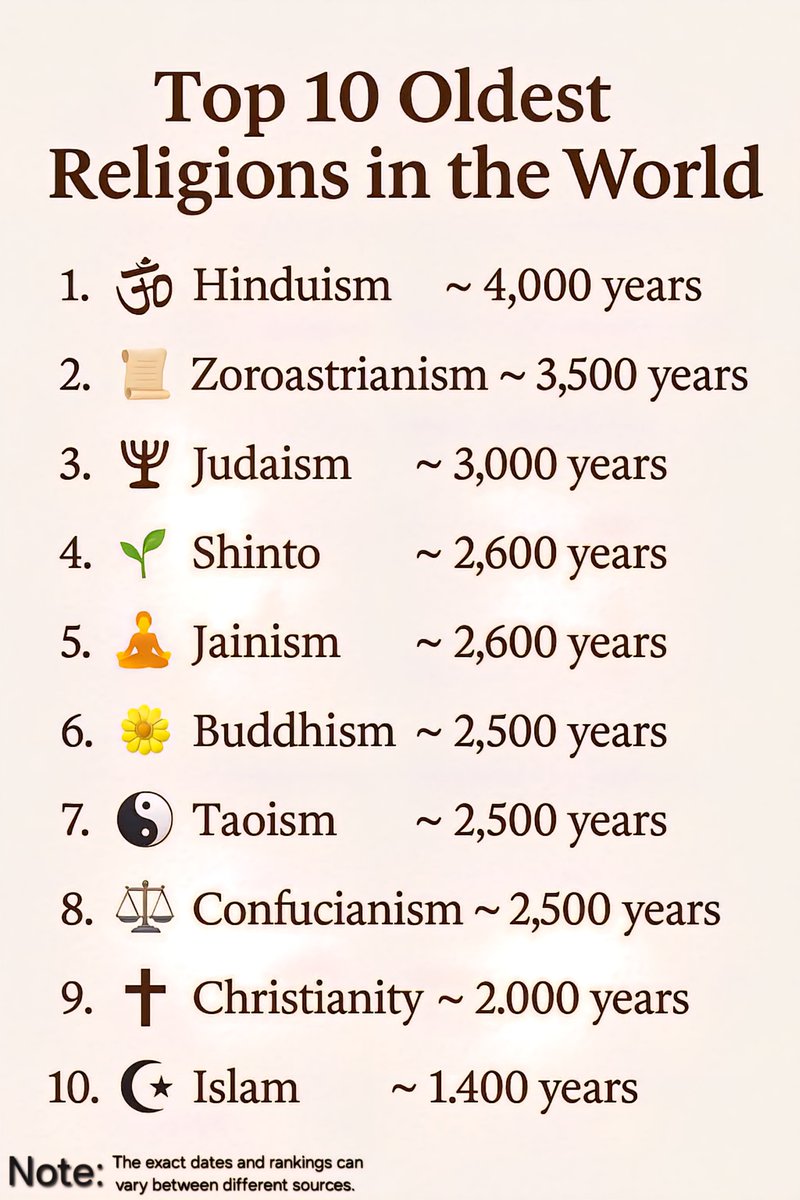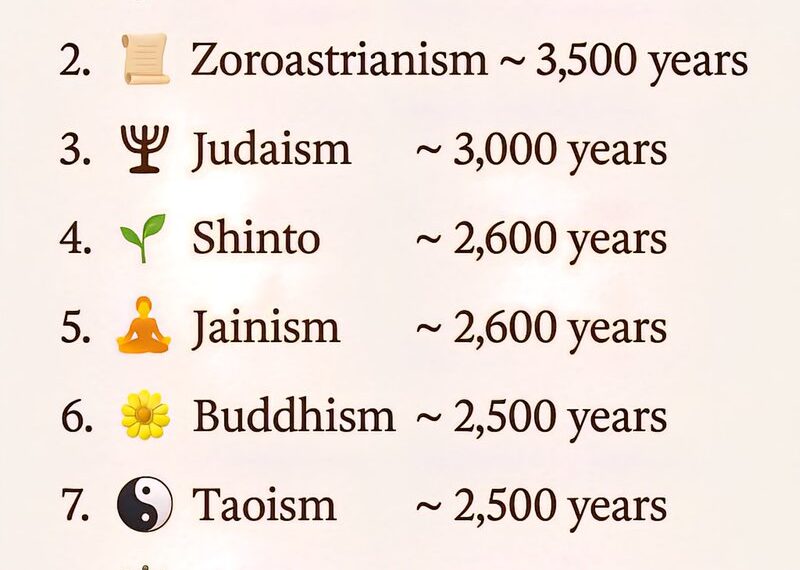Select Language:
Discover the Oldest Religions Still Impacting the World Today

1. Hinduism: The Ancient Faith with a Lasting Legacy
Hinduism, often considered one of the oldest religions still practiced today, dates back over 4,000 years. Originating in the Indian subcontinent, it encompasses a rich tapestry of philosophies, rituals, and cultural traditions. Hinduism’s core beliefs include the pursuit of dharma (duty), karma (action and consequence), and moksha (liberation from the cycle of rebirth). Its vast pantheon of gods and spiritual texts, such as the Vedas and Upanishads, continue to influence millions worldwide. The religion’s emphasis on spiritual diversity and inclusivity underscores its enduring relevance in contemporary society.
2. Zoroastrianism: Persia’s Ancient Faith
Founded around 1500 BCE in ancient Persia (modern-day Iran), Zoroastrianism is one of the world’s oldest monotheistic religions. It centers on the teachings of the prophet Zoroaster (or Zarathustra), emphasizing the cosmic battle between good (Ahura Mazda) and evil (Angra Mainyu). Zoroastrian worship involves rituals that promote purity and truth, with fire acting as a symbol of divine light. Although its followers have dwindled over centuries, Zoroastrianism’s influence can be traced in other religious traditions, including aspects of Judaism, Christianity, and Islam.
3. Judaism: The Foundation of Monotheistic Faiths
Judaism, dating back over 3,000 years, is the ancient faith of the Jewish people. It laid the groundwork for Christianity and Islam by establishing the concept of monotheism—believing in a single, omniscient deity. Central texts such as the Torah detail laws, history, and spiritual principles that continue to guide Jewish life. Today, Judaism remains a vibrant religion with diverse practices and communities worldwide, celebrating traditions that trace back to the biblical era.
4. Jainism: The Practice of Nonviolence and Asceticism
Jainism emerged in India around the 9th to 6th centuries BCE, emphasizing nonviolence (ahimsa), truth (satya), and asceticism. Its followers believe in strict adherence to vegetarianism and the pursuit of spiritual purity to achieve liberation. Jainism’s principles have profoundly influenced Indian culture, including the development of moral philosophies centered on non-harm to all living beings. Despite its small size today, Jainism’s ethical teachings have had lasting impacts on global discussions about compassion and sustainability.
5. Buddhism: The Path to Enlightenment
Founded by Siddhartha Gautama, known as the Buddha, in the 5th to 6th century BCE in India, Buddhism focuses on overcoming suffering through spiritual discipline and meditation. With its core teachings of the Four Noble Truths and the Eightfold Path, Buddhism offers a practical approach to achieving enlightenment (nirvana). It has spread far beyond its origins, with numerous schools like Theravāda, Mahāyāna, and Vajrayāna, influencing millions across Asia and increasingly across the West.
6. Taoism: Philosophy of Harmony and Balance
Originating in China over 2,000 years ago, Taoism emphasizes living in harmony with the Tao, or the natural order of the universe. Its foundational text, the Tao Te Ching, advises simplicity, humility, and compassion. Taoism influences various aspects of Chinese culture, including medicine, martial arts, and art. Its teachings continue to be relevant in modern discussions of sustainability and personal well-being.
7. Confucianism: Ethical Philosophy Shaping Society
Developed around 500 BCE by Confucius in China, Confucianism is mainly a moral and social philosophy rather than a religion centered on worship. It advocates virtues like filial piety, righteousness, and respect for elders, emphasizing the importance of societal harmony. Though often considered a philosophy, Confucian values deeply influence Chinese culture, politics, and education to this day.
8. Shinto: Japan’s Indigenous Belief System
Shinto is Japan’s native religion, dating back over 2,000 years. It centers on the worship of kami—spirits associated with natural elements, ancestors, and sacred spaces. Shinto practices include rituals, festivals, and offerings aimed at maintaining harmony between humans and nature. Its influence is visible in many Japanese traditions, architecture, and national ceremonies.
9. Christianity: From Ancient Roots to Global Faith
Christianity emerged in the 1st century CE, rooted in the teachings of Jesus Christ. It grew out of Jewish traditions and became a distinct religion emphasizing salvation, love, and forgiveness. Today, Christianity is the largest religion worldwide, with many denominations including Catholicism, Protestantism, and Orthodox Christianity. Its impact on governance, art, and ethics remains profound across numerous cultures globally.
10. Islam: The Faith of Submission
Islam, founded in the 7th century CE by the Prophet Muhammad in the Arabian Peninsula, teaches submission to the one God, Allah. The Quran is its sacred text, guiding followers through prayers, moral conduct, and community life. Islam spans numerous cultures and regions, with Sunni and Shia being its primary branches. Its teachings continue to shape civilizations, legal systems, and social structures around the world.
The landscape of world religions reveals a fascinating array of beliefs and practices, each with roots stretching back thousands of years. These faiths have shaped civilizations, influenced cultures, and continue to inspire millions today. From ancient philosophies to vibrant modern practices, they remind us of humanity’s enduring spiritual quest.
Note: This article is based on the historical timeline of religious traditions as of 2025 and reflects ongoing cultural and spiritual developments.






